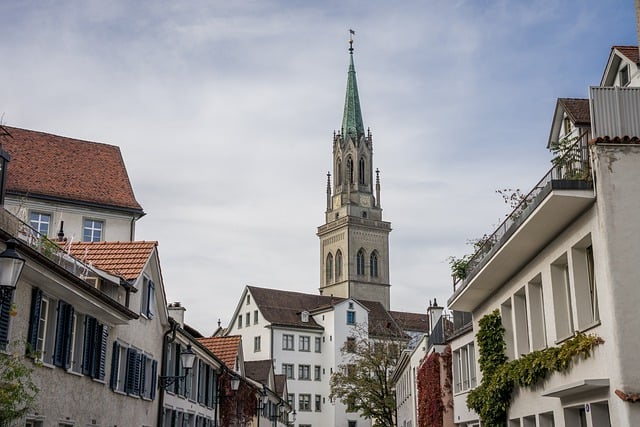Foreign Investment in the Netherlands: Opportunities and Challenges

The Netherlands is one of the most attractive destinations for foreign investment in Europe, thanks to its strategic location, robust economy, and business-friendly environment. The country serves as a gateway to the European market, offering numerous opportunities for investors across various sectors. However, like any investment destination, the Netherlands also presents certain challenges that investors need to navigate. This article explores the opportunities and challenges of foreign investment in the Netherlands, providing a comprehensive overview for potential investors.
1. Why Invest in the Netherlands?
1.1. Strategic Location
- Gateway to Europe: The Netherlands is strategically located in the heart of Europe, providing easy access to major European markets. The Port of Rotterdam, Europe’s largest port, and Amsterdam Schiphol Airport, one of the busiest airports in Europe, facilitate efficient logistics and distribution.
- Excellent Infrastructure: The country boasts world-class infrastructure, including advanced transportation networks, high-speed internet, and reliable utilities.
1.2. Business-Friendly Environment
- Ease of Doing Business: The Netherlands consistently ranks high in global ease of doing business indices. The government offers various incentives, including tax breaks and grants, to attract foreign investment.
- Stable Economy: The Dutch economy is one of the most stable and prosperous in the world, with a strong focus on innovation and sustainability.
1.3. Highly Skilled Workforce
- Education and Talent: The Netherlands has a highly educated and multilingual workforce, with a strong emphasis on STEM (Science, Technology, Engineering, and Mathematics) education.
- Innovation Hub: The country is home to numerous research institutions and innovation hubs, fostering a culture of creativity and technological advancement.
1.4. Favorable Tax Regime
- Corporate Tax Rates: The Netherlands offers competitive corporate tax rates, with a standard rate of 25.8% (as of 2023) and a reduced rate of 19% for the first €200,000 of taxable profit.
- Tax Treaties: The country has an extensive network of tax treaties, reducing the risk of double taxation for international businesses.
2. Key Sectors for Investment
2.1. Technology and Innovation
- Tech Startups: The Netherlands is a hotspot for tech startups, particularly in Amsterdam, Eindhoven, and Utrecht. The country offers a supportive ecosystem for innovation, including access to venture capital and incubators.
- Artificial Intelligence and Big Data: The Dutch government actively promotes AI and big data initiatives, providing opportunities for investment in cutting-edge technologies.
2.2. Agriculture and Food Processing
- Agri-Food Sector: The Netherlands is a global leader in agriculture and food processing, known for its advanced farming techniques and sustainable practices. The country is the second-largest exporter of agricultural products in the world.
- Food Innovation: There are numerous opportunities for investment in food innovation, including plant-based proteins, vertical farming, and food safety technologies.
2.3. Renewable Energy and Sustainability
- Green Energy: The Netherlands is committed to transitioning to a green economy, with ambitious targets for renewable energy and carbon reduction. Investment opportunities exist in wind energy, solar power, and energy storage solutions.
- Circular Economy: The Dutch government promotes a circular economy, encouraging investment in recycling, waste management, and sustainable manufacturing.
2.4. Life Sciences and Health
- Pharmaceuticals and Biotechnology: The Netherlands is a hub for pharmaceutical and biotech companies, with a strong focus on research and development. The country offers a favorable regulatory environment and access to a skilled workforce.
- Healthcare Innovation: There are opportunities for investment in healthcare innovation, including telemedicine, medical devices, and digital health solutions.
2.5. Logistics and Distribution
- Port of Rotterdam: As Europe’s largest port, Rotterdam offers unparalleled opportunities for investment in logistics and distribution. The port is a key hub for global trade, with state-of-the-art facilities and efficient operations.
- E-commerce: The growth of e-commerce has created opportunities for investment in logistics, warehousing, and last-mile delivery solutions.
3. Challenges of Foreign Investment
3.1. Regulatory Compliance
- Complex Regulations: Navigating the Dutch regulatory environment can be challenging, particularly for foreign investors unfamiliar with local laws and procedures.
- Environmental Standards: The Netherlands has stringent environmental regulations, which can increase compliance costs for certain industries.
3.2. High Labor Costs
- Wages and Benefits: The Netherlands has relatively high labor costs, including wages, social security contributions, and employee benefits. This can impact the profitability of labor-intensive industries.
- Labor Market Rigidity: Dutch labor laws provide strong protections for employees, making it difficult to adjust workforce size and conditions.
3.3. Competition
- Saturated Markets: Some sectors, such as retail and hospitality, are highly competitive, with well-established local players. Breaking into these markets can be challenging for new entrants.
- Innovation Pressure: The emphasis on innovation means that companies must continuously invest in R&D to stay competitive.
3.4. Brexit Uncertainty
- Trade Disruptions: While the Netherlands has positioned itself as a gateway to Europe post-Brexit, ongoing uncertainties and trade disruptions can pose challenges for businesses reliant on UK-EU trade.
4. Government Support and Incentives
The Dutch government offers various support programs and incentives to attract foreign investment:
4.1. Investment Grants
- Innovation Credit: Provides financial support for innovative projects in SMEs.
- WBSO (R&D Tax Credit): Offers tax relief for research and development activities.
4.2. Regional Development Funds
- Regional Investment Funds: Provide funding for projects that promote regional economic development and job creation.
4.3. Expat Facilities
- 30% Ruling: A tax advantage for highly skilled expats, allowing 30% of their salary to be tax-free for up to five years.
5. Steps to Invest in the Netherlands
5.1. Market Research
- Feasibility Study: Conduct a thorough market analysis to understand the competitive landscape, customer needs, and regulatory environment.
5.2. Legal and Financial Advisory
- Legal Structure: Choose the appropriate legal structure for your business, such as a BV (private limited company) or NV (public limited company).
- Tax Planning: Consult with tax advisors to optimize your tax strategy and take advantage of available incentives.
5.3. Business Registration
- Chamber of Commerce: Register your business with the Dutch Chamber of Commerce (Kamer van Koophandel).
- Permits and Licenses: Obtain any necessary permits and licenses for your industry.
5.4. Establish Local Presence
- Office and Staff: Set up a local office and hire staff. Consider partnering with local firms to navigate the market more effectively.




